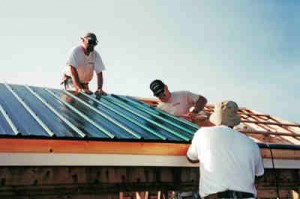Things that You Should Know About Roof Warranties
Having a new roof along with the usual warranty that goes with it could lead to a false sense of security for some people. Thinking that your roof is secured by the warranty could be farthest from the truth.
An article that appeared in the official consumer website of the National Roofing Contractors Association (NRCA) highlights the importance of thoroughly understanding roof warranties and hiring roofing contractors to install the new roof system. Whether the building involved is residential or commercial, always consider the following things before entering into contracts with roof manufacturers.
1. Don’t Forget the Fine Print
Read the fine print carefully. Most people never bother to read them, which could lead to misunderstanding in the future on the exact coverage of the warranty. Coverage differs from one manufacturer to another, although they may come in the usual 10-year warranty. Some warranties may cover “all defects” while another promises to “keep the roof watertight.” These are totally different things and could make a big difference when issues appear in the future.
2. Choose a Reputable Contractor
In most warranties, the first two years of the warranty period is covered by the roofing contractor who installed the roof system. Choosing a certified and reputable contractor is important to maintain this type of warranty, particularly if the manufacturer is strict on this matter. Make sure to hire a contractor who could stay in business to be able to respond to future problems.
The diverse provisions and coverage of warranties underlines the importance of choosing a roofing contractor whom you can trust. A good contractor will advise you on the important provisions in the warranty with emphasis on those that are often misunderstood by homeowners.
3. Take Good Care of Your Roof
Performing regular preventive maintenance is important not only to keep your roof in good condition and last a long time but to keep the warranty effective. Some warranties require regular roof maintenance otherwise they become invalid. Manufacturers expect homeowners to take reasonable care of their roofs that are subject to the warranty.
4. The Limited Value of Warranties
Lastly, never rely on warranty for a long-term sense of security. A warranty effective for 10 years does not mean your roof will remain in great condition after 20 to 30 years. The actual worth of warranties is for people who have plans of selling their properties in the near future. Warranties no longer matter after they lapse since people will care more about how well the roof is maintained.
